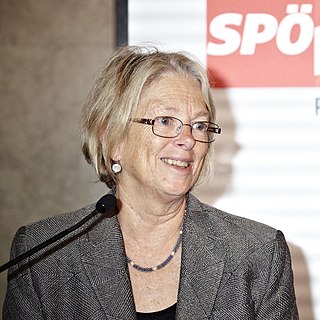Related Research Articles
Lumen, formerly Chilling Effects, is an American collaborative archive created by Wendy Seltzer and operated by the Berkman Klein Center for Internet & Society at Harvard University. It allows recipients of cease-and-desist notices to submit them to the site and receive information about their legal rights and responsibilities.
Center for Democracy & Technology (CDT) is a Washington, D.C.–based 501(c)(3) nonprofit organisation that advocates for digital rights and freedom of expression. CDT seeks to promote legislation that enables individuals to use the internet for purposes of well-intent, while at the same time reducing its potential for harm. It advocates for transparency, accountability, and limiting the collection of personal information.

The copyright law of Canada governs the legally enforceable rights to creative and artistic works under the laws of Canada. Canada passed its first colonial copyright statute in 1832 but was subject to imperial copyright law established by Britain until 1921. Current copyright law was established by the Copyright Act of Canada which was first passed in 1921 and substantially amended in 1988, 1997, and 2012. All powers to legislate copyright law are in the jurisdiction of the Parliament of Canada by virtue of section 91(23) of the Constitution Act, 1867.

Michael Allen Geist is a Canadian academic, and the Canada Research Chair in Internet and E-Commerce Law at the University of Ottawa. He is the editor of four books on copyright law and privacy law, and he edits two newsletters on Canadian information technology and privacy law.

Pamela Samuelson is the Richard M. Sherman '74 Distinguished Professor of Law and Information Management at the University of California, Berkeley with a joint appointment in the UC Berkeley School of Information and Boalt Hall, the School of Law.
An Act to amend the Copyright Act was a proposed law to amend the Copyright Act initiated by the Government of Canada in the First Session of the Thirty-Eighth Parliament. Introduced by the Minister of Canadian Heritage and Minister responsible for Status of Women Liza Frulla and then Minister of Industry David Emerson as An Act to Amend the Copyright Act, it received its First Reading in the House of Commons of Canada on June 20, 2005. On November 29, 2005, the opposition to the government tabled a non-confidence motion which passed, dissolving Parliament and effectively killing the bill. The subsequent government tabled a similar bill called C-61.

Canada ranks as the 21st in the world for Internet usage with 31.77 million users as of July 2016 (est), making up 89.8% of the population. According to Harvard researchers, Canada has some of the lowest internet standards among OECD countries, as a result of high costs and slow internet speeds.
File sharing is the practice of distributing or providing access to digital media, such as computer programs, multimedia, program files, documents or electronic books/magazines. It involves various legal aspects as it is often used to exchange data that is copyrighted or licensed.

The Information Society Project (ISP) at Yale Law School is an intellectual center studying the implications of the Internet and new information technologies for law and society. The ISP was founded in 1997 by Jack Balkin, Knight Professor of Constitutional Law and the First Amendment at Yale Law School. Jack Balkin is the director of the ISP.

Canadian defamation law refers to defamation law as it stands in both common law and civil law jurisdictions in Canada. As with most Commonwealth jurisdictions, Canada follows English law on defamation issues.
An Act to amend the Copyright Act was a bill tabled in 2008 during the second session of the 39th Canadian Parliament by Minister of Industry Jim Prentice. The bill died on the Order Paper when the 39th Parliament was dissolved prematurely and an election was called on September 7, 2008. The Conservative Party of Canada promised in its 2008 election platform to re-introduce a bill containing the content of C-61 if re-elected.
Online Rights Canada was a grassroots campaign to help notify the public on technology and informational policy issues and help the public notify their MPs about controversial proposals. It was launched with the support of the US-based Electronic Frontier Foundation (EFF) and the Canadian Internet Policy and Public Interest Clinic (CIPPIC). and had listings of how to contact local Canadian MPs to voice concern or support on policies and proposals. The Online Rights Canada website appears to no longer exist and the current site content does not reflect the organization or its efforts.
Net neutrality in Canada is a debated issue, but not to the degree of partisanship in other nations, such as the United States, in part because of its federal regulatory structure and pre-existing supportive laws that were enacted decades before the debate arose. In Canada, Internet service providers (ISPs) generally provide Internet service in a neutral manner. Some notable incidents otherwise have included Bell Canada's throttling of certain protocols and Telus's censorship of a specific website critical of the company.
An Act to amend the Copyright Act was a bill tabled on June 2, 2010 during the third session of the 40th Canadian Parliament by Minister of Industry Tony Clement and by Minister of Canadian Heritage James Moore. This bill served as the successor to the previously proposed but short-lived Bill C-61 in 2008 and sought to tighten Canadian copyright laws. In March 2011, the 40th Canadian Parliament was dissolved, with all the bills which did not pass by that point automatically becoming dead.
Fair dealing is a statutory exception to copyright infringement, and is also referred to as a user's right. According to the Supreme Court of Canada, it is more than a simple defence; it is an integral part of the Copyright Act of Canada, providing balance between the rights of owners and users. To qualify under the fair dealing exception, the dealing must be for a purpose enumerated in sections 29, 29.1 or 29.2 of the Copyright Act of Canada, and the dealing must be considered fair as per the criteria established by the Supreme Court of Canada.

An Act to amend the Copyright Act, also known as Bill C-11 or the Copyright Modernization Act, was introduced in the House of Commons of Canada on September 29, 2011 by Industry Minister Christian Paradis. It was virtually identical to the government's previous attempt to amend the Copyright Act, Bill C-32. Despite receiving unanimous opposition from all other parties, the Conservative Party of Canada was able to pass the bill due to their majority government. The bill received Royal Assent on June 29, 2012 becoming the first update to the Copyright Act since 1997.
Robert J. Glushko is an adjunct professor at the University of California Berkeley School of Information. He has written a number of books including Document Engineering (2005) and The Discipline of Organizing (2013).

The Protecting Canadians from Online Crime Act was introduced by the Conservative government of Stephen Harper on November 20, 2013, during the 41st Parliament, and received royal assent on December 9, 2014.

Frederick Ghahramani is a Canadian businessperson.

The Online News Act, known commonly as Bill C-18, is a Canadian federal statute. Introduced in the 44th Canadian Parliament, passed by the Senate on June 15, 2023, and receiving royal assent on June 22, 2023, the act will implement a framework under which digital news intermediaries that hold an asymmetric position must bargain with online news publishers to compensate them for the act of reproducing or facilitating access to their content via their platforms.
References
- 1 2 "About Us" . Retrieved 6 January 2010.
- ↑ "Samuelson-Glushko Canadian Internet Policy and Public Interest Clinic (CIPPIC)". Internet Society. Archived from the original on 23 November 2015. Retrieved 22 November 2015.
- ↑ Nowak, Peter (2008-06-12). "Copyright law could result in police state: Critics". CBC News.
- ↑ Arellano, Nestor E. (2008-06-17). "Copyright bill strikes discordant note with Canadian musicians, consumer groups". ITbusiness.ca.
- ↑ "Privacy commissioner launches Facebook probe after law students file complaint". 2008-05-30. Archived from the original on June 2, 2008.
- ↑ Kapica, Jack (2008-01-16). "Once more unto the breach". The Globe and Mail .